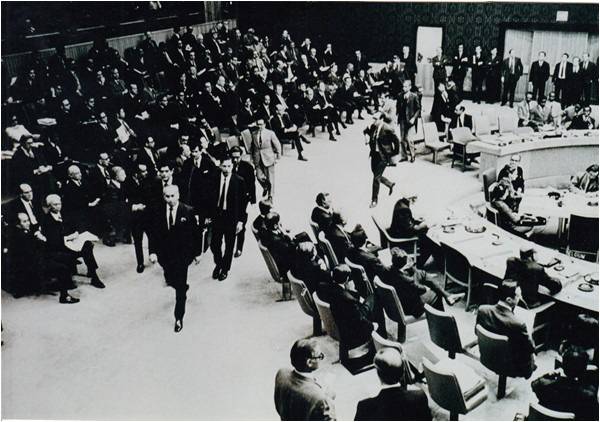
Foreign Minister and Deputy Head of Government Zulfikar Ali Bhutto had arrived in New York a few hours after Lt. Gen. Rao Farman Ali had written to UN Representative in Dhaka Paul Marc Henry, conveying his willingness to surrender the troops in East Pakistan. UN Secretary General U Thant had that letter printed for circulation to the Security Council but it was stopped as our Permanent Mission under Ambassador Agha Shahi (backed by Bhutto) correctly assessed, that after a surrender Pakistan had no negotiating position.
However, when President General Yahya Khan assented to Governor Malik (who had been given authority in advance by Yahya to decide the need and timing) and General Niazi surrendering and after forewarning this would happen the next day, Yahya told Bhutto in a telegram and then in an acerbic midnight exchange on the phone, “We have to preserve what we have left.” Bhutto felt betrayed as he had come on the assurance that there would be no surrender till a settlement had been negotiated, as he reminded Yahya Khan.
That morning, Bhutto, after a heartfelt and bitter speech, famously walked out of the Security Council after tearing up his notes. His delegation followed, including junior officers Khalid Mahmood, Munir Akram and myself with Agha Shahi wondering if our seat should be left empty as last to get up and leave. As we still had to know how the proceedings continued, to our chagrin Munir Akram and I were sent back in but we sat in the seats on the left behind the delegations.
I asked the UN photographer if he had captured the walk-out and he give me this unique picture of that very sad event. It was an event which convinced me to stay out of multilateral diplomacy for the next 31 years, as it was clear our only safeguard lay in strengthening ourselves and becoming a nuclear power. That conviction had led me to study military and naval strategy at Oxford where my contemporary Samar Mubarakmand filled me on on the technical side. I recognised, of course, that our diplomatic skills would be even more essential in preserving our freedom of action in reaching that stage—then subsequent to demonstrating that capability for fighting off inevitable attempts to constrain our nuclear evolution which was crucial for our defense requirements. The fact that we have been able to do so is a tribute to our diplomacy and diplomats.
-Tariq Osman Hyder
Correction: The caption for this image was incorrectly attributed to the TFT archive. It is in fact, from Tariq Osman Hyder. TFT regrets the error, which went into print for the October 7, 2016 edition. We have corrected the caption and attribution to read as the above.
However, when President General Yahya Khan assented to Governor Malik (who had been given authority in advance by Yahya to decide the need and timing) and General Niazi surrendering and after forewarning this would happen the next day, Yahya told Bhutto in a telegram and then in an acerbic midnight exchange on the phone, “We have to preserve what we have left.” Bhutto felt betrayed as he had come on the assurance that there would be no surrender till a settlement had been negotiated, as he reminded Yahya Khan.
That morning, Bhutto, after a heartfelt and bitter speech, famously walked out of the Security Council after tearing up his notes. His delegation followed, including junior officers Khalid Mahmood, Munir Akram and myself with Agha Shahi wondering if our seat should be left empty as last to get up and leave. As we still had to know how the proceedings continued, to our chagrin Munir Akram and I were sent back in but we sat in the seats on the left behind the delegations.
I asked the UN photographer if he had captured the walk-out and he give me this unique picture of that very sad event. It was an event which convinced me to stay out of multilateral diplomacy for the next 31 years, as it was clear our only safeguard lay in strengthening ourselves and becoming a nuclear power. That conviction had led me to study military and naval strategy at Oxford where my contemporary Samar Mubarakmand filled me on on the technical side. I recognised, of course, that our diplomatic skills would be even more essential in preserving our freedom of action in reaching that stage—then subsequent to demonstrating that capability for fighting off inevitable attempts to constrain our nuclear evolution which was crucial for our defense requirements. The fact that we have been able to do so is a tribute to our diplomacy and diplomats.
-Tariq Osman Hyder
Correction: The caption for this image was incorrectly attributed to the TFT archive. It is in fact, from Tariq Osman Hyder. TFT regrets the error, which went into print for the October 7, 2016 edition. We have corrected the caption and attribution to read as the above.

